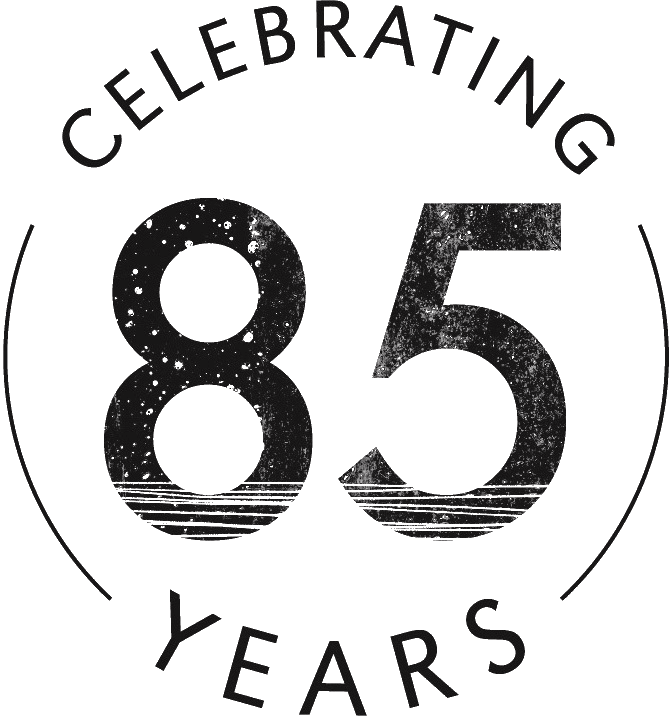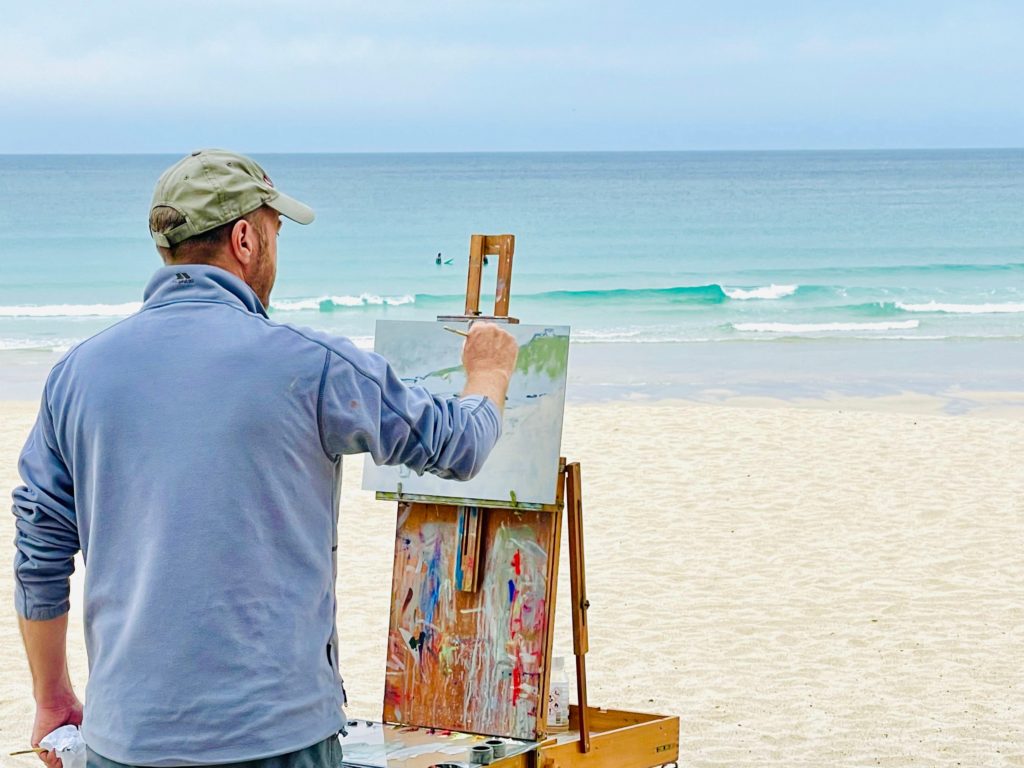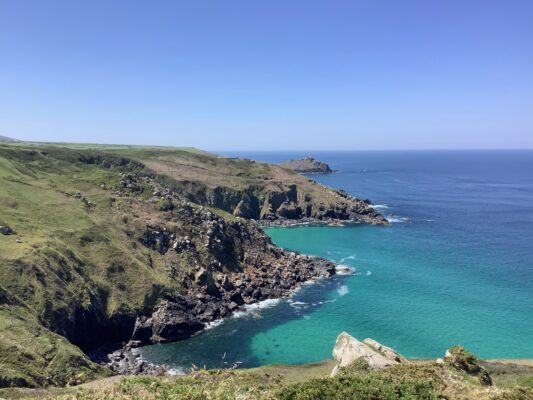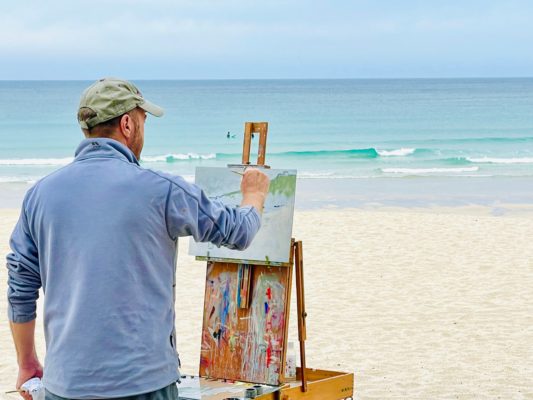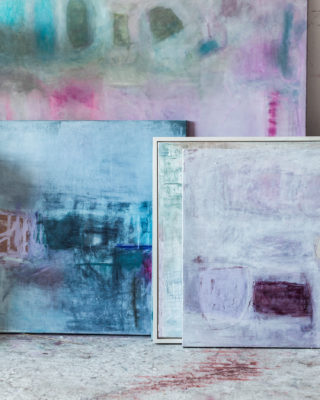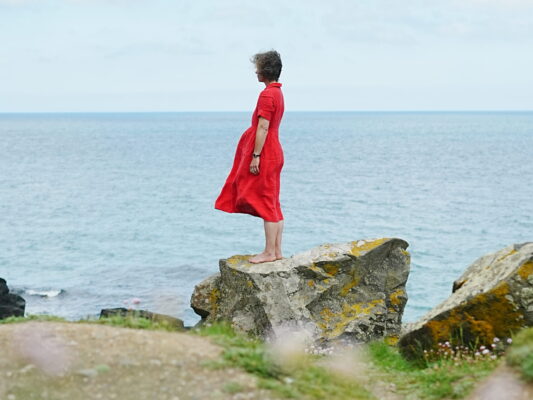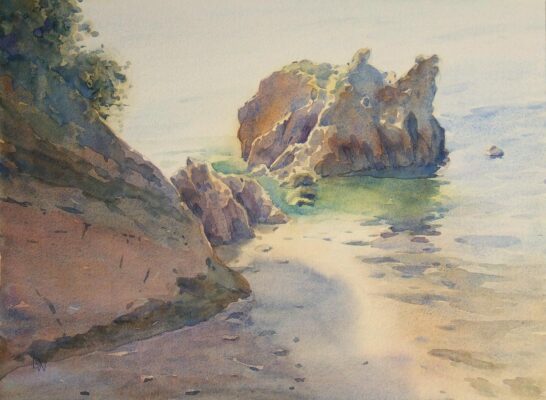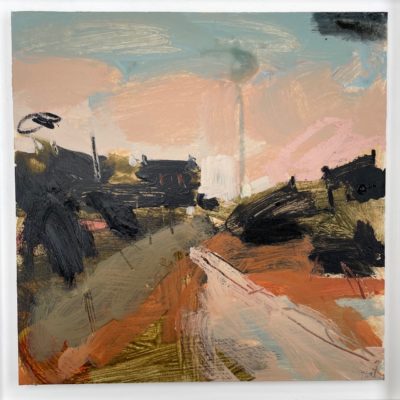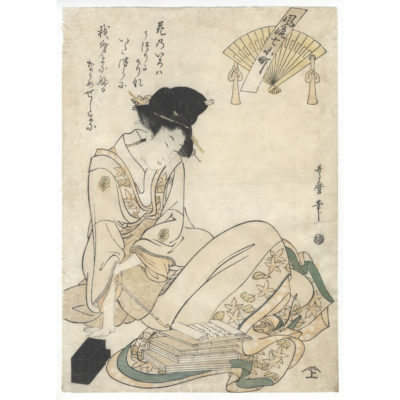Course details
Learn the art of plein air painting and make the most of summertime by painting outdoors. Taught in a small group in our live interactive classroom.
Ever wanted to paint outdoors but wasn’t sure where to start? On this three-day course, artist Andrew Barrowman will show you the fundamentals of setting up, working in the elements and capturing the atmosphere and light of place.
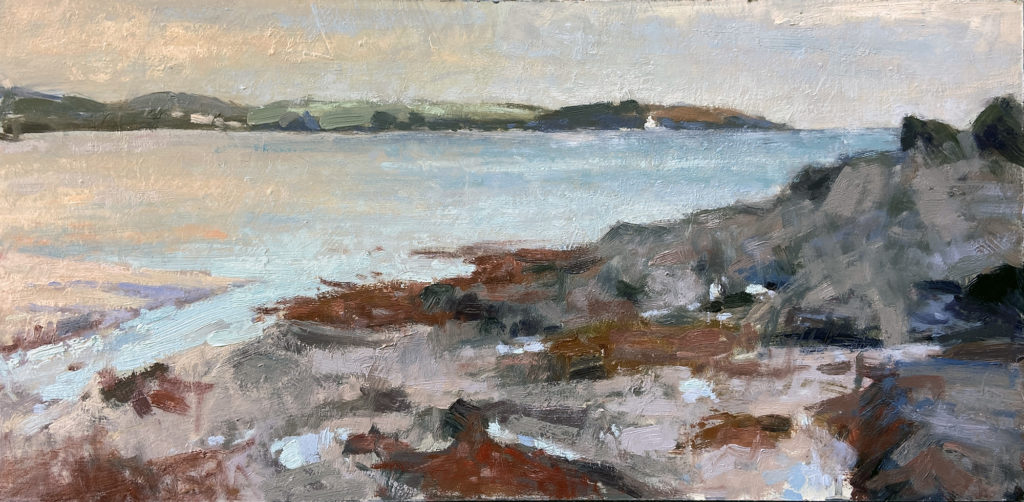
Join Andrew live from Porthmeor Studios to see how painting outside can add a new depth of expression to capturing the landscape. Working with the elements, paint in a more intuitive and fast-paced way and see how to add light and luminosity to your paintings. Translated as ‘open air’ from French,en plein air painting was popularised in the 1800s by the Impressionists. Traditionally, painters would work from their studios, using paints made by grinding and mixing dry pigment powders with linseed oil. With the introduction of paints in tubes in the 1870s, painting outside became a much more attractive prospect.
Working en plein air allowed artists to capture the emotional and sensory dimensions of a landscape as well as a new spirit of spontaneity. Defining both a technical approach and a whole artistic credo, artists such as Constable, Corot and Manet depicted the landscape through an attention to light and atmosphere.
Andrew will give clear demonstrations of how to set up your workspace outdoors, which materials to bring, how to respond to the landscape around you as well as how other en plein air painters such as Constable, Corot and Manet have worked. Learn how these iconic painters transformed the way landscape painters worked. See how this versatile approach can be used to free up your practice and gain confidence in to set up your easel and paint – whether that be in your surrounding landscape or far off travels!
This course takes place in a small teaching group via Zoom. This is the closest thing to a studio experience without the need to travel.
You can ask questions and get feedback on your work in realtime. Chat live with fellow students during the course and stay in touch via our learning platform. After each session we will send you a recording which you can keep for a further 6 months, so you can practise what you’ve learnt and retain access to all the course resources in our virtual learning environment.
.
Sessions
Over 3 tutored sessions, join Andrew live in the studio. You will be able to ask questions and get feedback on your work in real time via your camera and microphone. Enjoy live interaction with your fellow students. After each class we will send you a recording so you can continue independently in the afternoon. With access to our virtual learning environment you can watch the recordings and retain access to all course resources for a further six months
Pre-course tech session : Friday 19th August 3pm – 4pm
An optional session with our technical staff to make sure you are comfortable using Zoom and the online course platform. A fortnight before the course starts we will send you the zoom link for the technical session and further information regarding our online course management system.
Monday 22nd August: 11am – 2pm
Andrew will begin the day looking at some examples of plein air painting including Fred Cuming, Jon Redmond, Walter Sickert, John Constable and John Singer Sargent. After this, see which equipment you will need and learn to lay out a palette. Andrew will demonstrate how different easels, surfaces, mediums mixed with oils and brushes can create different effects. Using the view from the window at the School, overlooking Porthmeor Beach, you will see how to approach a painting and learn how to start your own plein air painting.
In the afternoon, Andrew will set work for you to complete independently and towards the end of the day, give individual feedback via our interactive learning site.
Tuesday 23rd August: 11am – 1pm
Reviewing your painting from the previous day, you will use the same view you selected on day one to begin a limited colour painting. Begin a limited colour painting of the same view in real time using Cadmium Red, Yellow Ochre, Ivory Black and White.
After the tutored session you will be set independent work for the afternoon and again Andrew will give individual feedback via the learning platform
Friday 26th August: 11am – 1pm
On the final day, meet again on zoom to review the previous day’s work and begin a full colour painting of the view through the window, or the view you have selected, and take it through to completion. At the end, we’ll discuss our paintings and answer any questions.
What will I learn
Learn to set up your workspace outdoors.
Build confidence working in the landscape.
See how to capture light and atmosphere in oils.
Work in a more intuitive, dynamic way to capture a sense of place, wherever you are.
Learn about Impressionist painters such as Manet and Corot.
How does an online Zoom session work
This course takes place in a small teaching group via Zoom. This is the closest thing to a studio experience without the need to travel.
You can ask questions and get feedback on your work in realtime. Chat live with fellow students during the course and stay in touch via our learning platform. After each session we will send you a recording which you can keep for a further 6 months, so you can practise what you’ve learnt and retain access to all the course resources in our virtual learning environment.
You can watch this on a PC, laptop or tablet and if you have chromecast or miracast you could even cast to your SmartTV from your phone.
Who would this course suit?
This course is suitable for all abilities but particularly helpful for those wishing to expand their practice to working en plein air.
Taught by
What to Bring
We will send you a materials list to get together and any pre-course tasks.
You will need access to the internet and either a Smart TV, PC or laptop or a tablet with audio. Phones are not really suitable however cast your phone to a Smart TV.
Timings and Breaks
At 10:45 please click the link to join the live session.
Monday 22nd August, 11:00 – 14:00
Tuesday 23rd August, 11:00 -13:00
Friday 26th August, 11:00 – 13:00
You will have access to a recording of the sessions so you can revisit as often as you like for the duration of the course and until it expires.
What our students say
The course was managed very well for mixed abilities. The tutor was extremely patient and created a relaxed and informal environment, putting everyone at their ease. The whole group were lovely and it was both a creative and positive experience in which I re-kindled my love of painting after a few years’ gap. Thoroughly enjoyable!
Andrew was able to cater for everyone and was most encouraging. He was able to see peoples strengths and also where they needed support, a sensitive tutor.
FAQs
Online Broadcast
How can I get help in choosing a course?
Our friendly expert staff are always happy to discuss your needs and our courses in more detail to help you with your decision. Please call us on 01736 797180
Do I need a webcam/any equipment?
For our webinar sessions which are broadcast on the internet and no webcam or microphone is needed as you just need to be able to see/hear hosts and you can communicate using the chat function. You can watch using a PC, Smart TV or tablet. A phone isn’t ideal as you will struggle to see enough unless you can miracast to a screen or smart TV.
For the longer online courses on Zoom you will need a laptop or tablet with audio and camera enabled so you can have a screen near where you are working. If you have a PC without camera or speakers, you can purchase a plug and play webcam for approx £25 which connects to a usb port. You will also need reasonable broadband connection and speed.
All the art materials and equipment needed to participate in the course will be listed in full on the online learning platform, for live webinars this will be a minimum of two weeks before the session starts.
I have registered for the webinar but I can't find my joining link
You can access all the resources and joining link for your webinar via our online learning platform. You will need to have set up an account on our online learning platform in advance. You can do this during the checkout process when purchasing your webinar. If you are having trouble accessing your online account, please contact [email protected]. You can use a PC or tablet or even cast from your phone to watch on your Smart TV.
I paid for the session but missed it, how can I watch?
Currently all our online sessions are recorded and you can access the recording on our online learning platform until it expires. Usually 60 days for a webinar, 90 – 180 days for multipart webinars or online courses.
Studio Courses
How can I get help in choosing a course?
Our friendly expert staff are always happy to discuss your needs and our courses in more detail to help you with your decision. Please call us on 01736 797180
How do I get my work home?
Tutors have special techniques for transporting oil paintings and the school has plastic folders available in our shop for £3.50 or do bring a portfolio.
For international students we are happy to arrange transportation of your work back home.
What do I need to bring?
Absolutely nothing! All materials and aprons are provided although some people do like to bring their own set of brushes.
What do I do for lunch?
Courses allow an hour’s break for lunch and there are numerous places nearby or you are welcome to bring a packed lunch into the studio.
What times do courses run?
Most of our courses start at 10am and end at 4.30pm on the first day. Subsequent days we start at 9.30am ending at 4pm.
Weekend Courses run 10am – 4pm on the first day but the final day starts at 9.30 and ends at 3.30 with a short lunch break to enable people to get home that evening.
Do you have to be experienced to come to the School?
The School is a very friendly and welcoming place for all ages and experience. Our drop-in life classes and August half-day workshops are ideal for those wanting to have a go for the first time. Most of our longer courses are also fine for novices.
If any of the courses do need a bit of experience we flag this up in the brochure and on the website.
Booking a Course
How can I reserve a place?
We will hold a provisional reservation for 24 hours if you give us a call whilst you find accommodation. Otherwise please book online or by telephone 01736 797180.
You can reserve a place with a £100 deposit; balance is due 12 weeks before course start date.
About St Ives
Where do I park?
The nearest long stay public car parks are the Island and Barnoon Long Stay Car Park, both a 5 minute walk away. In the peak summer months it may be easier to park at Trenwith Car Park by the leisure centre and walk down into town. If you don’t fancy the walk up the hill at the end of the day there is a shuttle bus which runs from outside the cinema.
How do I get there?
Public Transport: If you are coming from further afield the main train line runs into St Erth which is a 15 min taxi ride away or you can take the St Ives Bay Line which runs approx. every 30 minutes. The School is a 10 minute walk from St Ives station.
Driving: M5 will take you to Exeter where we recommend that you take the A30 across Bodmin Moor and into Cornwall. After passing Hayle, leave the A30 at St Erth roundabout for St Ives. Turn right at the second roundabout. This road will take you through Lelant and Carbis Bay into St Ives.
Where can I stay?
St Ives has a huge selection of hotels, guest houses and self catering accommodation to choose from. Please browse the art holidays St Ives section on our website and give us a call if you would like any help.
